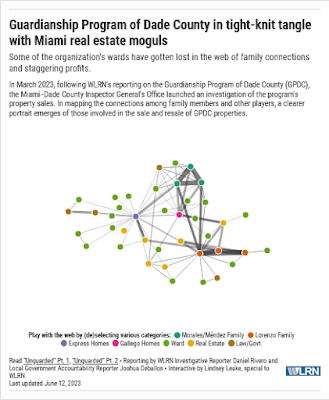Cindy Birdsong’s relatives have asked a court to place her in a conservatorship after they became concerned that her longtime friend had too much say over her care and finances.
Julia Jacobs and
For nearly a decade, Cindy Birdsong reigned as a member of the Supremes. Never as well-known as Diana Ross, Mary Wilson or even Florence Ballard — the singer she replaced in 1967 — she was, nonetheless, Motown royalty, whether onstage with the Temptations or at the funeral of Martin Luther King Jr.
But Birdsong’s life changed dramatically after she left the group in 1976. Her finances fell apart and she eventually sold off the trappings of celebrity life, took an office job and largely withdrew from the limelight, resurfacing only occasionally at Motown events.
Much about Birdsong’s situation remained largely hidden from view, close friends and family say, because of her isolated life inside a Los Angeles apartment she shared with Rochelle Lander, a longtime friend with whom she started a Christian ministry.
Now the depths of Birdsong’s financial and medical struggles have become public as her family has gone to court to request a legal conservatorship to govern her affairs. They say the singer, 83, is totally incapacitated after suffering several strokes, and had to be rescued from Lander, a person they say began exerting undue influence over Birdsong’s care and finances, isolating her from friends and family even as her health worsened.
“She was keeping us in the blind,” said Ronald Birdsong, the former Supreme’s brother. He asked a Los Angeles Superior Court judge last month to appoint him as one of two conservators for his sister.
Lander has argued that for many years she was the only person willing to help Birdsong, a contention the family denies.
The dispute escalated in 2021 when the Los Angeles police, at the urging of Birdsong’s family, removed the singer from the apartment, citing her deteriorating condition. She is now in a skilled nursing facility.
The removal was put in motion by Brad Herman, a representative of the family who has been asked to serve as a co-conservator by Birdsong’s relatives. Herman, an entertainment business manager whose high-profile celebrity clients have included Burt Reynolds and Pat Boone, has a power of attorney signed by Birdsong’s three living siblings and a sister-in-law.
“It has been an open secret among the Motown family, the tragedy of Cindy,” Herman said in an interview.
Lander considered but did not agree to an interview, and stopped responding to inquiries. During Birdsong’s removal by the police, Lander defended her treatment of her friend, challenged the family’s right to intervene and displayed her own power of attorney form that Birdsong had signed over a decade earlier, which she said gave her the right to direct the singer’s medical and financial decision making.
“She had a complete mental break; no one would help her,” Lander told the police, according to a video of the encounter that took place in the hallway outside Birdsong’s apartment. “Nobody else would do it.”
Birdsong’s struggles follow a remarkable ascent to stardom for the eldest daughter of a Campbell Soup warehouse worker from Camden, N.J. In her early 20s, after learning to sing in the church choir, Birdsong became a doo-wop girl on the chitlin circuit, the network of venues where Black performers found refuge during segregation. While performing with Patti LaBelle & the Bluebelles, Birdsong often crossed paths with the Supremes, admiring the rising group’s glamour before she eventually was picked to replace Ballard.
The switch in singers, which some later recognized as an inspiration for “Dreamgirls,” the fictional musical and film, came at a critical moment for the Supremes. Their fame and influence had rocketed after No. 1 hits including “You Keep Me Hangin’ On” and “You Can’t Hurry Love,” but a name change — to Diana Ross and the Supremes — reflected the group’s shifting dynamics. Birdsong, a fluty soprano who bore a resemblance to Ballard — the women even had the same shoe and dress size — was professional, poised and well practiced. With her gentle manner and polished skills, she was well suited for a daunting role: keeping one of Motown’s premier acts on track.
“Cindy had a strong voice and charisma,” Gerald Posner, a Motown historian, said in an interview. “She’s the one who had to make the change look seamless — and she did.”
Birdsong’s profile soared as a Supreme, for good and for bad. In 1969 she was kidnapped at knife point from her apartment, and only escaped by jumping from a moving vehicle, an incident that still shook her years later, friends and family said. The following year, Ross departed for a solo career, but Birdsong stayed on before being asked to leave the group herself in 1976. Not long after her departure, the singer said in interviews that she had agreed to a “bad closing deal” with Motown Records that left her financially bereft.
Facing divorce and deeply depressed, Birdsong said in an interview in the 1990s, she was suicidal, with “pills in one hand, television changer in the other,” when she came upon the televangelist Jim Bakker preaching directly through the TV to a celebrity who had seen fame and glory but was ready to take their life. That was when she turned to religion, she said.
“God told me,” Birdsong recalled, “what my whole life was about. He said, ‘I gave you all these things and you got corrupted in them.’ And I was ordained to serve him, even from the womb.”
In the 1980s, Birdsong attempted a comeback as a soloist, but the effort petered out. She came to share an apartment with Lander, who had also been a performer and appeared in several TV shows in the 1970s and ’80s. Both women became increasingly involved with their faith and Birdsong said she chose to sing religious music, not Motown or other pop, often working to bring Christian songs to children and homeless people.
In one incident in 2012, the record producer Steve Weaver recalled in a phone interview, he was preparing to record a duet featuring Birdsong and Scherrie Payne, another former Supreme. He said the project would have provided Birdsong with extra cash, but that Lander intervened in the studio, declaring Birdsong was “not recording any secular music now.”
“Cindy went along with it,” said Payne, who said she witnessed Lander step in. “She was heavily into her evangelism.”
Money remained an issue despite efforts by some Motown alumni to help. Payne said she and Diana Ross gave Birdsong money. Eric Iversen, a manager of former Supremes, said he did too. Berry Gordy, the Motown founder who had hired Birdsong as a Supreme, also provided financial assistance to her over the years, according to a statement from his office.
For many in that circle, Birdsong’s predicament echoed that of Ballard, who had ended up on welfare after being fired from the Supremes. She died at 32 of cardiac arrest.
For years, Birdsong’s siblings did not take issue with Lander taking the lead on caring for their sister, they said. But Melody Birdsong, a sister-in-law, said that after Cindy had a second major stroke about seven years ago, Lander became increasingly secretive about the status of Birdsong’s health, at one point refusing to tell the family the medical facility where she was receiving care.
“We didn’t even know where Cindy was,” Melody Birdsong said.
Birdsong’s only child, David Hewlett, and her brother Ronald said that for years they had difficulty visiting Cindy or reaching her through Lander. Hewlett said that several years ago, he and Payne went to the apartment with police to make certain they could gain entry.
Ronald Birdsong, who lives in New Jersey, said he once took a weeklong trip to California and tried to visit his sister repeatedly without success.
Mary Wilson, an original member of the Supremes who died in 2021, had discussed her own frustrations around not being able to reach Birdsong, said Mark Bego, a close friend who co-wrote a book about the group with her.
Family members initiated the conservatorship proceeding to ensure, they said, that Birdsong’s life and finances could not again become subject to Lander’s control.
The court has scheduled a hearing for August.
Ronald Birdsong said the family hopes the conservatorship process will provide a more complete accounting of his sister’s income and assets, though neither appears to be substantial. Birdsong is not known to have retained significant royalty rights, though she received payments totaling less than “six figures” from one company in 2021, according to Herman, who took over a bank account of hers that year.
The Birdsong family rejected Lander’s assertion that they had never been there to help or offer financial assistance. Ronald Birdsong said he opened a joint bank account in his and his sister’s name. Charles Hewlett, Birdsong’s ex-husband, said he had sent checks. Both said Lander declined their aid.
“Without Brad, I don’t know where we’d be,” Melody Birdsong said.
Family members said their concerns grew a few years ago when several relatives were allowed into the apartment and were shocked to find Cindy on a feeding tube. They resolved that day to find her a new living arrangement.
“I was so devastated this last time I went to see my sister because that’s not how she was the last time that I saw her,” Cindy’s sister Terri Birdsong said. “I was able to feed her and cook for her and then I show up and she’s on a feeding tube?”
During the 2021 police intervention, Lander defended her care of Birdsong. She complained that Birdsong never received needed money that had been raised for her in 2013 by a performing arts organization. She explained that she had been the person who arranged for her friend to move into a skilled nursing facility at one point, and she noted that the city’s Adult Protective Services had been to the apartment and had not elected to remove her. (The agency declined to comment on its finding.)
Lander told the officers it was ill advised to take Birdsong to the hospital amid the pandemic, noting that they both had “religious objections” to the Covid vaccine.
“The family has known about this; they can’t come in without giving me due process,” Lander said before the emergency personnel entered and wheeled Birdsong out on a gurney, according to the video of the police response.
Clayton Golliher, a pastor and director of an organization called Hope for Homeless Youth, said that Lander and Birdsong had been involved with his program for years and that he had never seen anything to question Lander’s care and affection for Birdsong.
“I didn’t get anything but 100 percent positive about Rochelle and the way she was sensitive to Cindy,” Golliher said.
In the conservatorship application, Birdsong’s condition is summarized by the nursing facility, which says she is unable to get out of bed or communicate, and that she is on a feeding tube.
As Birdsong lay in bed last year, Herman brought in a figure from her Motown days, hoping that he could help energize her: Eddie Holland, a member of the songwriting team Holland-Dozier-Holland behind many of the Supremes’ hits. In an interview, Holland recalled that he started singing songs like “Baby Love” and “I Hear a Symphony,” and saw a sign of recognition.
“For some reason she starts smiling,” Holland said. “She grabbed my hand and sort of clutched my fingers.”
Susan Beachy contributed research. Lauren Herstik contributed reporting.
Full Article & Source:
The Family of a Former Supreme Battles for Control of Her Life



























